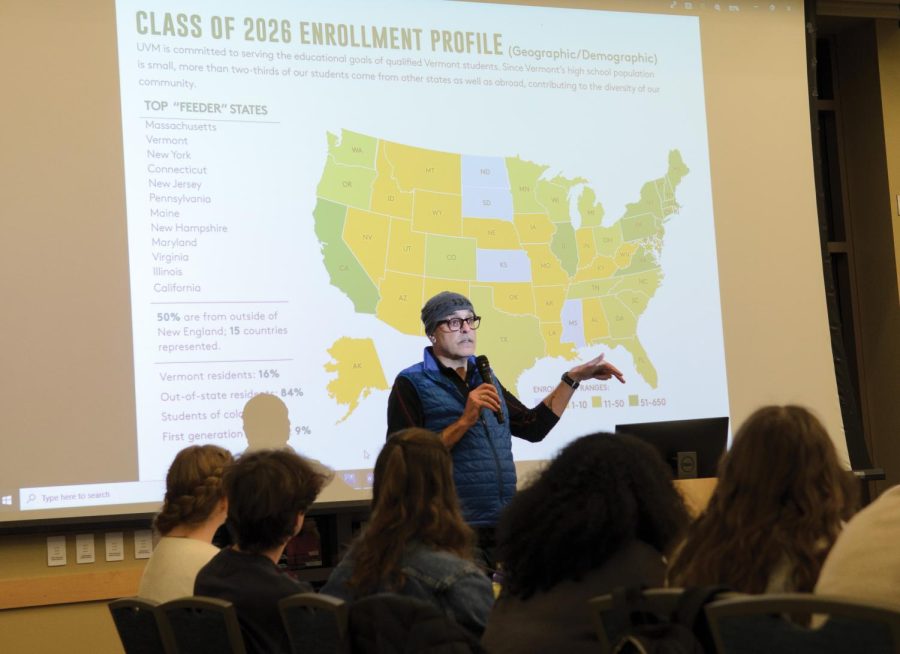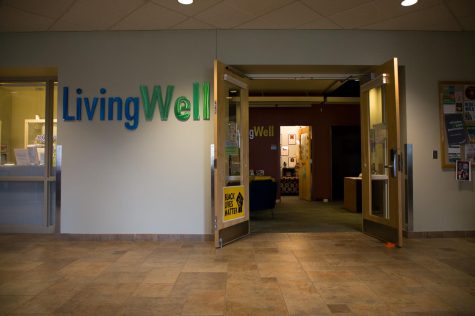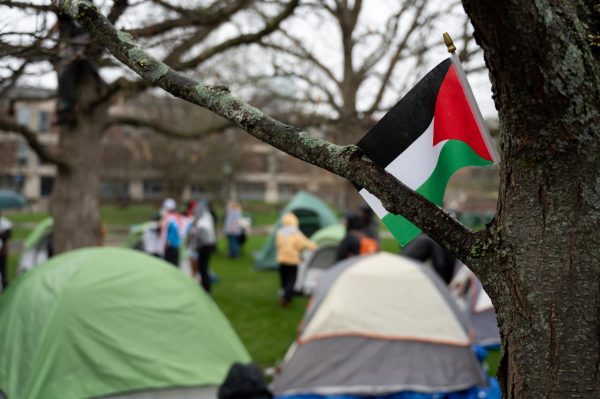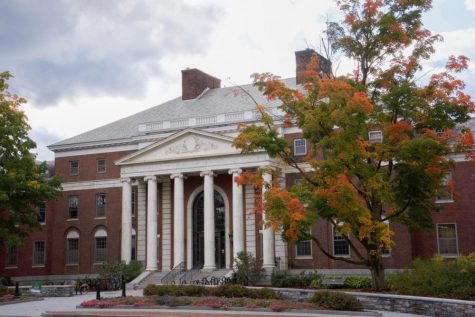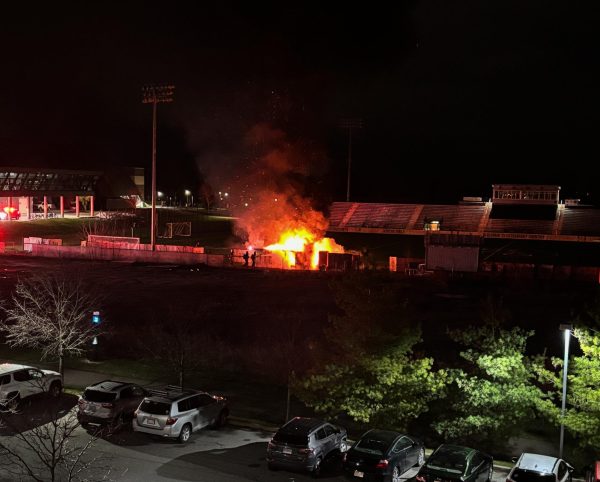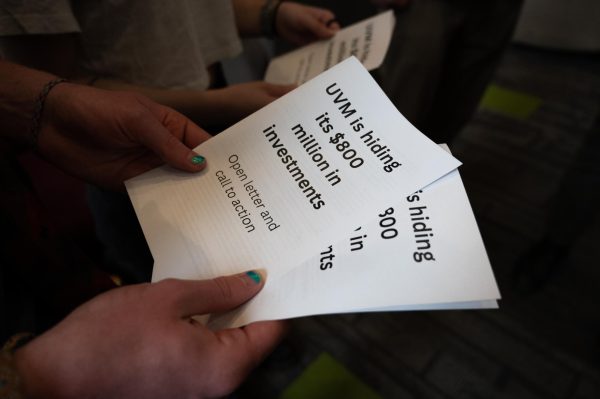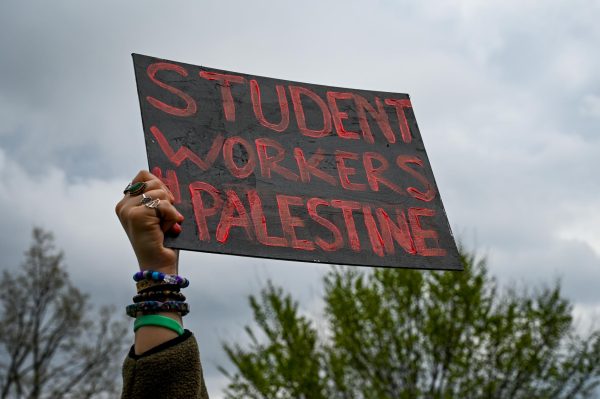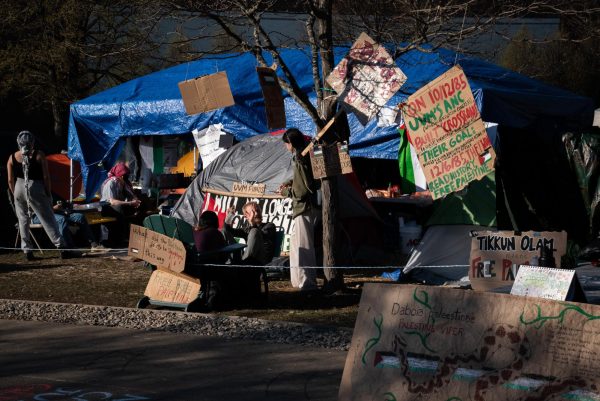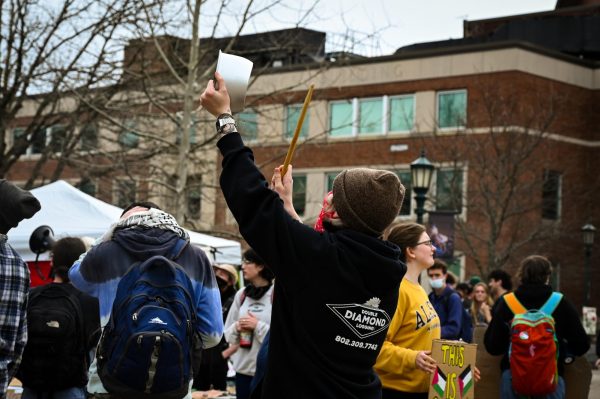House bill intended to ease housing crisis would limit University enrollment
Troy Headrick, state representative for the Chittenden-15 District, presenting at SGA’s Feb. 14 meeting about a new bill in the Vermont House of Representatives surrounding UVM student living.
A bill in the Vermont House of Representatives would force UVM to cap student enrollment at current levels until Burlington’s rental vacancy reaches 5%, said Troy Headrick, state representative for the Chittenden-15 District, in a Feb. 14 SGA meeting.
The bill, titled H.311, would address the housing crisis while ensuring UVM isn’t able to use the opportunity to increase enrollment, Headrick said.
“We have to start talking about the elephant in the room, which is the impact UVM has on the housing crisis,” he said.
The University has no intention of increasing enrollment, stated UVM spokesperson Enrique Corredera in a Feb. 23 email.
“We believe the university is in the best position to determine the enrollment level that serves the needs of our students and allows us to fulfill our land grant mission for the benefit of Vermont,” Corredera stated. “At present, we are at a sustainable ‘right size’ for UVM, and we have no plans to grow beyond the current number of new students.”
Headrick said Vermont’s low rental vacancy rate is largely to blame for student difficulties finding housing and paying inflated prices.
Vermont’s rental vacancy in 2021 was 2.5%, whereas the average rental vacancy in the United States in 2021 was 5.8%, according to data from the U.S. Census Bureau.
Headrick said he is worried UVM might use more on-campus student housing to increase student enrollment without addressing the existing problem of housing scarcity for off-campus students.
The Trinity campus rezoning plan identifies goals to create new undergraduate and graduate housing, and upgrade existing residence halls on campus, according to the plan. UVM has also requested an increase in the allowable height for buildings and the amount of space they can take up on a lot.
Headrick said negotiations over the Trinity campus rezoning have led to UVM’s refusal to sign a new memo of understanding for payment for services with the City of Burlington.
A memo of understanding is a formal and non-binding agreement that signifies an intent for collaborative partnership, according to UChicago Global.
UVM pays the City of Burlington $1.3 million annually for services it provides to the school, such as fire services and other costs related to its impact on the city, according to UVM’s website.
“Right now, there is no memo and the current administration is refusing to sign any sort of new memo,” Headrick said. “That’s because the city and the administration are trying to leverage whatever kind of bargaining power they might have about new housing, […] on Trinity campus to be specific.”
The University continues to work with the City of Burlington on zoning updates on Trinity campus, according to Corredera’s email.
“We have a good working relationship with the City of Burlington, and we will continue to partner with city officials to keep finding the best path forward, including zoning updates that would allow the university to explore expanded housing on the Trinity Campus,” Corredera stated.
Headrick said more on-campus housing would make the problem worse in the future.
“The residents around you are worried that if we allow UVM to just build another residence hall, we’re just going to continue to increase enrollment,” he said. “It’s only going to exacerbate this problem.”
The bill would also require the University to guarantee that every on-campus student has at least 93 square feet of living space, Headrick said.
93 square feet is the approximate average square footage per student in a double occupancy room at UVM, he said.
“That is designed to prevent UVM from just simply shoving more and more students into forced triples,” Headrick said.
In spring 2022, UVM predicted an uptick in the use of dorm triples in the future, according to an April 7, 2022 Cynic article.
Headrick said the bill aims to force UVM to step up and have conversations with the City of Burlington.
“I’ve been waiting to take action from a legislative point of view until I have been convinced that the city council have exhausted all their efforts to play nice, and they have,” he said.
Headrick said that it will take a strong community push to convince the House Education Committee that the bill is worthy of their attention.
“It’s going to take plenty of people-convincing that this is important and that it should be taken up,” he said.
H.311 is cosponsored by Headrick and Burlington Representatives Brian Cina, Kate Logan, Emma Mulvaney-Stanak, and Gabrielle Stebbins, according to the Vermont General Assembly website.
While the bill aims to combat the housing crisis, it will bring UVM’s attention to the issue even if it’s not passed, Headrick said.
“I believe that if passed, this legislation would have a positive impact on the housing crisis,” he said. “If it doesn’t get passed, all it does is send a clear message to UVM that the legislature is looking at this and is worried about this.”
SGA Senator Cat Jones, a sophomore, is glad to see the housing crisis being addressed, they said.
“I think that housing is absolutely what I would consider the number one issue with students,” they said. “If anything, this will just help push forward some more talks and conversations.”
SGA Senator Ashleigh Clark, a junior, said she thinks the bill will help bring UVM and the City of Burlington together for conversation.
“It’s a great step towards bridging the gap between administration, students and also the broader community of Burlington,” she said. “Sometimes it feels like there’s a bit of a disconnect.”
SGA Senator Liam Orr, a senior, said he believes the bill seems like an overreach of power by the state legislature, but is an important step in encouraging conversation between Burlington and UVM.
“I think the bill is […] a necessary evil in a sense, because the administration and city council are so deadlocked,” he said. “I think it’s important that a third party come in.”


